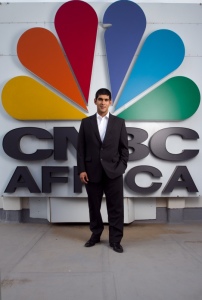Are career goals a necessary step to success? Millennials tell us about their greatest career achievements and spill their secrets to defining the right career path in today’s unpredictable economy.
Gen-Y has become known for doing things differently. We’re choosing to avoid our parents’ footsteps, and instead steering towards the unbeaten path. Our careers are not constructed to be rigid rungs. They are not shaped for a 40-year climb to the top. We do not have comfortable pensions waiting for us; nor do we have a safety net to catch our descent into retirement.
No, the millennial career path looks very different from anything that’s come before. We’re not travelling in one linear direction. In fact, we’re kind of all over the map.
We’re taking time off from the job hunt to travel the world. We’re starting our own families at 25. We’re becoming CEOs at 26. We’re building our own businesses at 21. We’re dreaming big. We’re making plans. And we’re getting shit done.
But are these stories limited to a select few? Are these just the “lucky ones?” The economy is clearly not working in our favour. Jobs are scarce and we’re burdened by massive amounts of school debt.
So what does it take for millennials to get ahead? How can you build the foundations needed for a successful career?
The age-old advice would be to set career goals. You define your targets, visualize your actions and direct your efforts.
However, studies say your career goals may be hindering your success more than propelling it. According to Harvard researchers, goals can “give you tunnel vision and blind you to productive possibilities.”
Author Stever Robbins calls career goals an exercise in futility.
“If you are 25-years-old, unless you are a relatively unusual person with a lot of means, chances are really good that you’ve been exposed to an extraordinarily small fraction of the things there are to be exposed to,” he says. “Think of your early career, if not your early life, as a succession of experiments.”
But what do millennials think?
I tend to ask myself if an opportunity will give me something unique, something I can really learn from and use down the road.
 “I think it’s important to have a vision of where you see yourself and the life you want to create for yourself,” says PR pro Morgan Cadenhead, who currently works as Account Lead for Toronto PR firm Kim Graham & Associates (kg&a). “Knowing the kind of experiences you want to have, the kind of people you want to surround yourself with and what makes you feel happy and fulfilled ultimately leads you to a career path that ticks off all the boxes.”
“I think it’s important to have a vision of where you see yourself and the life you want to create for yourself,” says PR pro Morgan Cadenhead, who currently works as Account Lead for Toronto PR firm Kim Graham & Associates (kg&a). “Knowing the kind of experiences you want to have, the kind of people you want to surround yourself with and what makes you feel happy and fulfilled ultimately leads you to a career path that ticks off all the boxes.”
In her role, Cadenhead leads a portfolio of clients, providing strategic advice and counselling on public relations and communications efforts. She’s 23-years-old, and a winner of the Canadian Public Relations Society (CPRS) Doris Whiteside Award. Cadenhead didn’t get to where she is today by telling herself she’ll “be CEO by age 35.”
When she makes decisions in her career, she says she relies on her gut. “I tend to ask myself if an opportunity will give me something unique, something I can really learn from and use down the road,” she says.
As for her advice to fellow millennials struggling to determine what career path to take? Network.
“Having a strong network of people who know you beyond just a handshake and a business card will help you make meaningful connections that will open up doors you’d never know were there otherwise,” she says.
I don’t want to sound overly materialistic, but money does motivate me to a large degree.
 Sid Wahi, CEO of CNBCAfrica.com, Forbes Africa and Director of CNBC Africa, says career goals are important and necessary. “Without setting benchmarks, you just drift through life without a frame of reference for how far you have come or how far you have fallen behind,” he says.
Sid Wahi, CEO of CNBCAfrica.com, Forbes Africa and Director of CNBC Africa, says career goals are important and necessary. “Without setting benchmarks, you just drift through life without a frame of reference for how far you have come or how far you have fallen behind,” he says.
Being a business owner, Wahi’s career goals are often linked to achieving revenue and profitability targets. “I don’t want to sound overly materialistic, but money does motivate me to a large degree,” he says.
However, he also prioritizes personal development, with aims to speak at a minimum of three conferences a year, join professional bodies or groups and “make sure I constantly up-skill myself.”
Wahi made South Africa’s list of top 200 young people in 2014 – an achievement that did not come without risk. He decided early on to break away from the norm.
“In today’s economy, we have enough bankers, lawyers [and] accountants who don’t mind being a cog in someone else’s machine,” he says. “I would highly recommend that new graduates explore being entrepreneurs and following their own start up dream or business idea. Once you go down a certain path with your career, it becomes very difficult to break away and do your own thing in the future.”
I have always been a 4.0 student, [following] the mindset that I needed good grades so I could get into a good college so I could get a good job.
Kate Tilton is doing just that. A 21-year-old author assistant and business owner, Tilton believes goals are important in business, but they should be pursued with the intent of opening doors, not closing them.
that. A 21-year-old author assistant and business owner, Tilton believes goals are important in business, but they should be pursued with the intent of opening doors, not closing them.
“I have always been a 4.0 student, [following] the mindset that I needed good grades so I could get into a good college so I could get a good job,” she says. But her plans changed when she decided to pursue the entrepreneurial life. “Now I’m on a completely new path and much happier than if I stuck to my original plan.”
Tilton sets goals in efforts to grow her business, but she ensures her goals are flexible and that she is “still leaving the door open for [new] opportunities.” She says setting goals and taking the time to reflect on how far you’ve come in achieving them are important steps in measuring your success. “I believe we are all successful in one way or another and sometimes, in a world that loves to compare one person to the next, we need to take a step back and look at how much we have grown from our own journey.”
The key is to know when it’s time to face your fears, even if it means going down an unfamiliar path. You can also change direction. “Just because I am choosing [entrepreneurship] now does not mean that I have to do it forever,” she says. “If 10 years from now things change, I can change too.”
My definition of success, while easily defined with job title and salary, is better determined through how happy I am at work, how challenged I feel.
 “In my field of work, success [is defined through] achieving full-time employment,” says Cate Collinson, an ecologist at age 28. “Many of my counterparts are still struggling contract to contract with different firms.”
“In my field of work, success [is defined through] achieving full-time employment,” says Cate Collinson, an ecologist at age 28. “Many of my counterparts are still struggling contract to contract with different firms.”
In order to set herself apart from her peers, Collinson when back to school to complete a post graduate program, and then applied for work all over Canada.
“I was instantly set apart and got a contract in Alberta that helped me get the attention of a firm back in Ontario,” she says. “Within the year that I’ve been with the [Ontario] firm, I’ve begun on project management roles.”
Collinson says millennials should remain open to stepping outside of their comfort zones in the early stages of their careers, even if it means relocating to another province or country for work. She offers blunt advice to new graduates: “Get a job, even if it’s not exactly what you want to be doing or even if you think you are too good for that job.”
From there, as you look to move forward in your career, Collinson suggests scoping out your competition. “What do they have that you don’t? What are your similarities? Find out how to stand out next to them.”
What about you? How do you define success in your career? Do you set goals to help you achieve certain targets? Or do you believe a lack of direction is, in fact, more helpful than harmful to your career? Let us know in the comments below.


